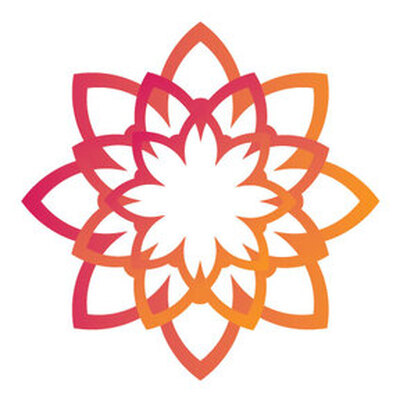More from NuLifeLineCare Rehab
More in Politics
Related Blogs
أرشيف
حصة الاجتماعي
Are you searching for “De-addiction Centre near me” on google?
الجسم
Understanding drug abuse and addiction
People from all walks of life can experience problems with their drug use, regardless of age, race, background, or the reason they started using drugs in the first place. Some people experiment with recreational drugs out of curiosity, to have a good time, because friends are doing it, or to ease problems such as stress, anxiety, or depression.
However, it’s not just illegal drugs, such as cocaine or heroin, that can lead to abuse and addiction. Prescription medications such as painkillers, sleeping pills, and tranquilizers can cause similar problems. In fact, next to marijuana, prescription painkillers are the most abused drugs in India and more people die from overdosing powerful opioid painkillers each day than from traffic accidents and gun deaths combined. Addiction to opioid painkillers can be so powerful it has become the major risk factor for heroin abuse.
When drug use becomes drug abuse or addiction
Of course, drug use — either illegal or prescription — doesn’t automatically lead to abuse. Some people are able to use recreational or prescription drugs without experiencing negative effects, while others find that substance use takes a serious toll on their health and well-being. Similarly, there is no specific point at which drug use moves from casual to problematic.
Drug abuse and addiction is less about the type or amount of the substance consumed or the frequency of your drug use, and more about the consequences of that drug use. If your drug use is causing problems in your life — at work, school, home, or in your relationships — you likely have a drug abuse or addiction problem.
If you’re worried about your own or a loved one’s drug use, learning how drug abuse and addiction develops — and why it can have such a powerful hold — will give you a better understanding of how to best deal with the problem and regain control of your life. Recognizing that you have a problem is the first step on the road to recovery, one that takes tremendous courage and strength. Facing your problem without minimizing the issue or making excuses can feel frightening and overwhelming, but recovery is within reach. If you’re ready to seek help, you can overcome your addiction and build a satisfying, drug-free life for yourself.
Risk factors for drug addiction
While anyone can develop problems from using drugs, vulnerability to substance addiction differs from person to person. While your genes, mental health, family and social environment all play a role, risk factors that increase your vulnerability include:
- Family history of addiction
- Abuse, neglect, or other traumatic experiences
- Mental disorders such as depression and anxiety
- Early use of drugs
- Method of administration — smoking or injecting a drug may increase its addictive potential
Choosing a Drug Rehab Addiction Program
If you feel trapped by substance addiction, finding the right treatment is crucial. By understanding the different options available, you can find the drug rehabilitation program that best fits your needs.
What is drug rehab?
Drug rehab programs or addiction treatments involve different levels of professional care that can help you manage a substance use disorder. Since the severity and circumstances of drug abuse and addiction can vary from person to person, you can find a broad variety of treatment options available.
If you have long been battling an addiction to opioids that originated from taking prescription medication to manage pain, for example, your treatment needs may be different than if you have a newly developed dependence on cocaine. Whatever the specifics of your drug abuse problem, addiction can shatter your mental and physical health, damage your relationships, and leave you feeling out of control of your own life.
No matter how bleak things may seem, though, it’s never too late to turn to professional intervention to set you on the road to recovery. Whether you’re looking to help yourself or a loved one, deciding on the best path forward begins with understanding the different types of drug rehab and treatment services available.
Types of drug rehab and addiction treatment services
Addiction treatment programs can be broadly categorized as either outpatient or inpatient.
If you seek help from an outpatient service, you’ll receive professional treatment for a portion of the day, or perhaps even most of the day. However, you’ll always return home when the session is over.
These types of services allow you more autonomy in your daily life. For example, you can still go to work and tend to household responsibilities. Although you won’t have 24/7 access to professional support, you’ll have more of an opportunity to put your addiction coping skills into practice at home.
On the other hand, inpatient rehab or residential treatment programs require you to stay at a facility overnight, sometimes for months at a time. You’ll be in a controlled environment, with staff present to tend to your needs. This can be a good option if you have a severe addiction and want to focus on recovery without having to juggle the stressors of everyday life.
Comparing inpatient with outpatient rehab services
Some research shows that people in inpatient programs are more likely to complete treatment than those using outpatient services. It’s possible that residential rehab helps shield a person from the social pressure and environmental triggers that lead to relapses. For example, you won’t have access to people who encourage continued drug use, and you won’t be able to reach for addictive substances when you’re stressed.
This doesn’t mean that inpatient drug rehab is the most effective treatment for everyone. It can be the more expensive option and impose limitations on your daily life.
Inpatient rehab options
Inpatient addiction treatments include intensive inpatient services and residential rehab programs.
Intensive inpatient rehab is typically for people who have developed a powerful, even life-threatening dependence on a drug. In these cases, quitting the drug is safest under medical supervision. Intensive inpatient services take place in a hospital setting, where health professionals are available to offer 24-hour attention and treatment, including therapy and nursing care. These services are often offered on a short-term basis, long enough to stabilize your symptoms.
Residential drug rehab involves living in a treatment center where you can benefit from staff support and a structured environment. A stay in one of these facilities might last a month or longer, depending on your circumstances.
Group therapy and one-on-one counseling sessions are often available in residential rehab to help you better understand addiction and develop coping skills. However, the exact services you find will vary widely from program to program.
For example, some offer scheduled cognitive behavioral therapy (CBT) sessions, while others rely more on 12-step programming — the kind you might find in peer support groups such as Narcotics Anonymous. In addition, some residential rehab programs are designed to work with people who have co-occurring mental health conditions.
Outpatient treatment options
Outpatient addiction treatment also comes in several forms, including partial hospitalization programs (PHP), intensive outpatient programs (IOP), or more general outpatient services.
PHP is sometimes referred to as day treatment because, although you return home at the end of the day, these programs require a fairly large time commitment — usually of at least 20 hours per week. Services often take place within a facility such as a hospital, where you can easily benefit from services such as different forms of therapy and medication management education.
IOPs are similar to PHPs. The major difference is that IOPs require a smaller time investment. So, they’re suitable when you still need to prioritize other responsibilities, such as work, and when the severity of your addiction doesn’t rise to the needs of someone in a PHP. In an IOP, you might spend somewhere between 9 and 19 hours of your week receiving services like psychoeducational group therapy. Some of these programs also include individual therapy sessions.
General outpatient services, such as one-on-one meetings with an addiction counselor or therapist, are helpful when you feel stable but still want continued help in managing a substance abuse disorder. You might have an occasional check-in with a counselor who helps you stay accountable in sticking to your recovery goals.
What to look for in a drug rehab program
When you feel desperate for help, it can be tempting to reach out to the first rehab center that pops up in an online search. However, a little research can help you avoid expensive or ineffective services. Here are a few basic questions you’ll want answered as you explore drug addiction treatment options for yourself or a loved one:
What’s the program’s accreditation and licensing status? Verify that the service is accredited by the state (or area) it’s operating in. On top of that, look for information on individual staff members who work in the rehab program. Are they licensed and experienced professionals?
What’s their approach? Look for services that rely on well-known, evidence-based treatments, such as CBT, medication-assisted treatment (MAT), or acceptance-commitment therapy (ACT). Staff should also be willing to explain why they believe their approach is effective and explain how they measure patient success.
What’s the timeline of the treatment? Different types of treatment plans will follow different timelines. For example, intensive inpatient care may only last a few days, while residential rehab can last from a single month to an entire year. Similarly, depending on your specific needs, outpatient care can typically last anywhere from a couple of months to a year. Research shows that the average length of stay in a PHP is three to four weeks.
How much will you be paying? Check to see how your health insurance may factor into the cost of the program. Some addiction treatments may provide out-of-network billing options.
If you or a loved one is struggling with addiction, don’t wait for tomorrow, call NuLifeLineCare rehabilitation centre in Dehradun today at: 8958305058
Or visit: https://nulifelinecare.org/
https://maps.app.goo.gl/4RA9z73YBzfXMSyx8?g_st=ic
#drugsfreeindia #saynotodrugs #nashamuktbharat #nashamuktbharatabhiyaan #nmba #bestrehabcentre #rehabilitation #nashamuktikendra #bestrehabindehradun #uttarakhand #fightagainstdrugs #fightagainstaddiction #nomoredrugs #addictionawareness #addictionrecovery #recovery #nasha_ab_nahi #bandkaronasha #dehradun #addiction #bestnashamuktikendra #nulifelinecarerehab












تعليقات